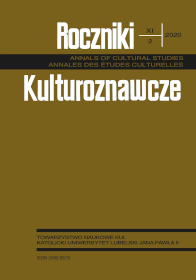Religious Mutual Understanding and Tolerance: A Panacea to Overcome the Contemporary Religious Crises in Nigeria
Abstract
The paper espouses the purpose of religion as designed for man by Allah and highlights the level of relationship between individuals and groups. Some religious crises recorded in the country that has led to wanton destruction of lives and properties are highlighted. The paper probes into causes of religious crises as well as misunderstanding between adherents of different faith that pose security challenges in the country, through analytic study. It laments that the reckless and barbaric killings of innocent people (Muslims and non-Muslims) could be averted through understanding and peaceful co-existence. The model of Prophet Muhammad on tolerance and peaceful co-existence is recommended as a way out of the challenges and a way of entrenching peaceful society which guarantee a sustainable development.
References
Adesoji, Abimbola. “The Boko Haram Uprising and Islamic Revivalism in Nigeria.” Afrika Spectrum: Deutsche Zeitschrift für Gegenwartsbezogene Afrikaforschung 45 (2010), no. 2: 95–108.
Ahmad, Imtiaz. Speeches for an Inquiring Mind. Madina: Al-Rashd, 2006.
Akintola, Is-hāq Lakin. The Friday Question. Lagos: Al-Tawheed, 1993.
Anyacho, Ernest O. Essential Themes in the Study of Religion. Obudu: Niger Link, 2005.
Best, Elsdon. Maori Religion and Mythology Part 1. Wellington: A.R. Shearer, 1924.
Bidmos, Aderemi Muritala. Inter-religious Dialogue: The Nigerian Experience. Lagos: Panaf, 2006.
Bidmos, Aderemi Muritala. Inter-religious Dialogue: The Nigerian Experience. Lagos: Islamic Publication Bureau, 1993.
Dauda, Stephan Rasaki. “Poverty and Economical Growth in Nigeria: Issues and Policies.” Journal of Poverty 21 (2016), no. 1: 61–79. DOI: 10.1080/10875549.2016.1141383.
Haykal, Muhammad Husayn. The Life of Muhammad. Translated by Isma’il al-Faruqi. London: Shorouk International Kenjoel, 1993.
Ibrahim, Mir Mohammed. “Concept of Religion: An Analysis.” In World Religions and Islam: A Critical Study. Part 1, edited by Hameed N. Rafiabadi. New Delhi, Sarup & Sons, 2003.
Mawdudi, Sayyid Abul A’la. Let Us be Muslims, edited by Khurram Murad. Markfield, Leiecestershire: The Islamic Foundation, 2004.
[Nigeria] National Bureau of Statistics. “2014 Job Creation Report (Q3).” National Bureau of Statistics. Accessed December, 2018. http://www.nigerianstat.gov.ng.
[Nigeria] National Bureau of Statistics. “Labour Force Survey, March 2009.” National Bureau of Statistics. Accessed July, 2010. http://www.nigerianstat.gov.ng.
Salawu, Beshiru. “Ethno-Religious Conflicts in Nigeria: Causal Analysis and Proposals for New Management Strategies.” European Journal of Social Sciences 13 (2010), no. 3: 345–353.
Turki, Abdullah. “Islamic Dialogue.” The Muslim World League 36 (2008), no. 5: 14–15.
Ucha, Chimobi. “Poverty in Nigeria: Some Dimensions and Contributing Factors.” Global Majority E-Journal 1 (2010), no.1: 46–56.
Ünal, Ali, & Alphonse Williams. Advocate of Dialogue: Fethullah Gulen. Fairfax: Fountain, 2000.





